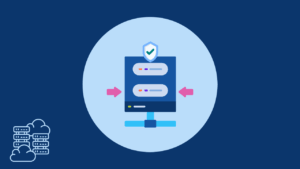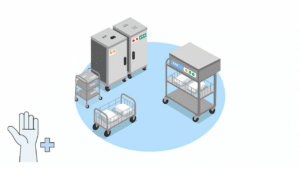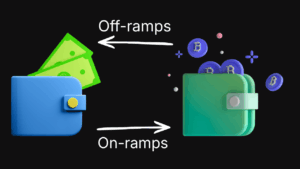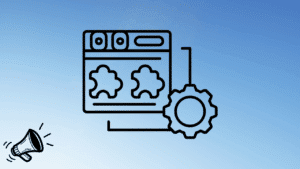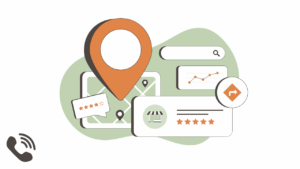Ukraine’s local business consulting scene has changed quickly in the past few years, which makes it a compelling market for founders and executives who want practical guidance, not theory. If you are exploring new suppliers or expansion paths in Eastern Europe, starting with a trustworthy local partner can save months of trial and error. Companies that want to do real business in Ukraine see the biggest gains when they work with consultants who understand regional regulations, supply chains, talent pools, and the post war recovery map at street level. In this article, we’ll explore the trends in local business consulting in Ukraine.
Why Ukraine’s Consulting Market Is Different Right Now
Ukraine combines a highly educated workforce, a maturing tech ecosystem, and a strong export mindset. Even during disruption, Ukrainian firms kept shipping software, design, engineering, and agritech services across borders. Local consultants grew up in that environment. They bring a no nonsense approach, clear KPIs, and a bias for measurable outcomes. You are not buying a binder. You are buying traction in an evolving market.
Three forces define the current moment. First, rebuilding creates demand for operational excellence, compliance, and financing strategies. Second, global buyers want resilient supply options, which turns nearshoring and ally shoring into daily conversations. Third, digital adoption has accelerated. Many Ukrainian small and mid sized businesses now ask for data informed marketing, marketing automation, and channel analytics before they ask for a logo. That shift favors consultants who blend management skills with growth and product thinking.
What Local Consultants Actually Deliver: Trends in Business Consulting in Ukraine
Local business consultants in Ukraine tend to focus on a practical bundle of services. Market entry mapping, legal and tax coordination, vendor and site selection, hiring plans, and performance marketing are the common starting points. From there, the conversation usually moves to pricing strategy, partnerships, and localization, since the Ukrainian buyer journey differs from the U S or EU in small but important ways.
The best firms also act like integrators. They will help you connect your finance stack to local banks, align VAT and export rules with your ERP, and stand up a simple analytics suite so you can see what is working. This is not busy work. It is the plumbing that keeps a new country operation from stalling.
Business Development Strategies That Work In Ukraine
You can win quickly if you focus on five plays that local consultants keep using with good results.
- Start With Real Customer Interviews. Ukrainian B2B buyers are direct. They will tell you what they need if you ask. A local consultant gets you in the room, runs interviews in Ukrainian, and translates feedback into a short set of non negotiables for product and service delivery.
- Build A Channel Partner Mesh. Distributors and regional resellers remain powerful. Consultants can identify trusted partners in industrial regions, then negotiate tiered discounts and service level expectations. The outcome is faster coverage with controlled risk.
- Treat Compliance As A Growth Lever. Certifications, safety standards, and export paperwork are not only checkboxes. When your materials show clean compliance, procurement moves faster. Local advisors know which auditor to call and which document actually matters.
- Localize Pricing And Payment Flows. Card rails, currency options, invoicing cadence, and tax receipts affect conversion rates. Consultants tune these flows so your first month feels normal for a Ukrainian customer. That small friction drop often pushes you past competitors who did a quick translation and nothing else.
- Invest In Reputation Early. Case studies, Ukrainian language pages, office hours on Telegram and Viber, plus participation in local chambers and tech clusters raise trust. A consultant can seed that presence within a few weeks because they already know the communities.
The Digital Growth Layer
Even in traditional sectors, digital growth is not optional. Local consultants increasingly bundle SEO, paid search, analytics, and basic CRO. They do this to keep feedback loops tight. When a consultant owns both the go to market plan and the first wave of demand generation, they can test propositions faster, doubling down on what converts and shelving what does not.
Expect a strong push on page speed, structured data, local language content, and Google Business Profiles. So, a clear handoff between paid channels that collect initial signal and organic content that compounds. Expect dashboards that let you compare a regional landing page versus a national offer in a single view.
Where AI Fits Into The Picture: Trends in Local Business Consulting in Ukraine
Ukrainian teams are pragmatic about AI. They use it to accelerate research, summarize regulations, generate first pass drafts, and score leads. The consultant’s job is to set guardrails. Which prompts are allowed. Which models handle which tasks. How to document outputs for compliance. The result is a faster go to market motion without a hit to quality.
Practical Roadmap For Foreign Companies
If you want to work with a local consultant and move quickly, use this three phase roadmap.
Phase One, Discovery And Feasibility. Define the goal, constraints, and non negotiables. Commission a short feasibility study that covers target regions, buyer personas, regulatory exposure, and early budget. Ask for two or three entry hypotheses, not one.
Phase Two, Pilot And Proof. Pick one region and one channel. Launch a narrow offer with very clear acceptance criteria. Examples include distributor readiness, first ten B2B meetings, or one signed contract within ninety days. Keep the loop tight between field feedback and messaging.
Phase Three, Scale And Systematize. Lock in your partner agreements, standardize onboarding, and replace manual processes with simple automations. Expand to the next region only after the first one hits pre agreed thresholds for margin and retention.
What To Ask When Choosing A Consultant
Good consultants in Ukraine will invite tough questions. Ask how they measure success and how often you will see data. Ask which assumptions have failed recently and what they changed. In addition, ask for named references. Ask how they handle cross border payments and how they mitigate currency risks for service contracts. Also ask who will do the work. Senior attention matters most during the first sixty days.
Sample Budget And Timeline Table for Trends in Local Business Consulting in Ukraine
Use this simple table as a starting point. Numbers are illustrative and should be tuned to your sector and scope.
| Workstream | Typical Deliverables | Suggested Timeline | Ballpark Cost Range |
|---|---|---|---|
| Market Entry Discovery | Feasibility study, risk matrix, partner shortlist | Weeks 1 to 3 | 4,000 to 9,000 USD |
| Legal And Tax Setup | Entity guidance, banking, VAT, compliance checklist | Weeks 2 to 6 | 3,000 to 8,000 USD plus fees |
| Go To Market Pilot | Localized offer, landing pages, paid test, CRM setup | Weeks 4 to 10 | 6,000 to 18,000 USD plus media |
| Channel Build | Distributor contracts, enablement kits, SLAs | Weeks 8 to 16 | 5,000 to 12,000 USD |
| Growth And Analytics | SEO foundations, reporting, conversion fixes | Weeks 6 to 20 | 3,000 to 10,000 USD monthly retainer |
Risks To Watch And How To Reduce Them
The main risks are timeline slippage, regulatory surprises, and partner misalignment. You can reduce slippage with weekly standups, shared task trackers, and a clear change control rule. Moreover, can reduce regulatory surprises by using a local legal partner who reviews each major step. You can reduce partner issues with short initial contracts, transparent targets, and playbooks that spell out responsibilities.
Currency volatility and logistics can also bite into margins. Invoices in stable currency and local buffers in your delivery schedule help. Your consultant should model sensitivity scenarios before you commit.
The Payoff For Working With Local Experts
The payoff is speed without chaos. You get faster access to buyers, a realistic budget, and a plan that respects the way business is done in Ukraine. You also get a deeper view of the people and institutions you will rely on. The result is not just a launch. It is a learning engine that keeps improving your positioning as the market shifts.
Trends in Local Business Consulting in Ukraine Key Takeaways
Local business consulting in Ukraine is hands on and outcome driven. The strongest strategies focus on interviews, partner networks, compliance, localized payment flows, and early reputation building. Digital growth is built in from day one, with a balanced mix of SEO, paid channels, and instrumentation. AI plays a supporting role, not a magic trick. Companies that choose their partner carefully and move in phases see faster wins and fewer costly surprises.

